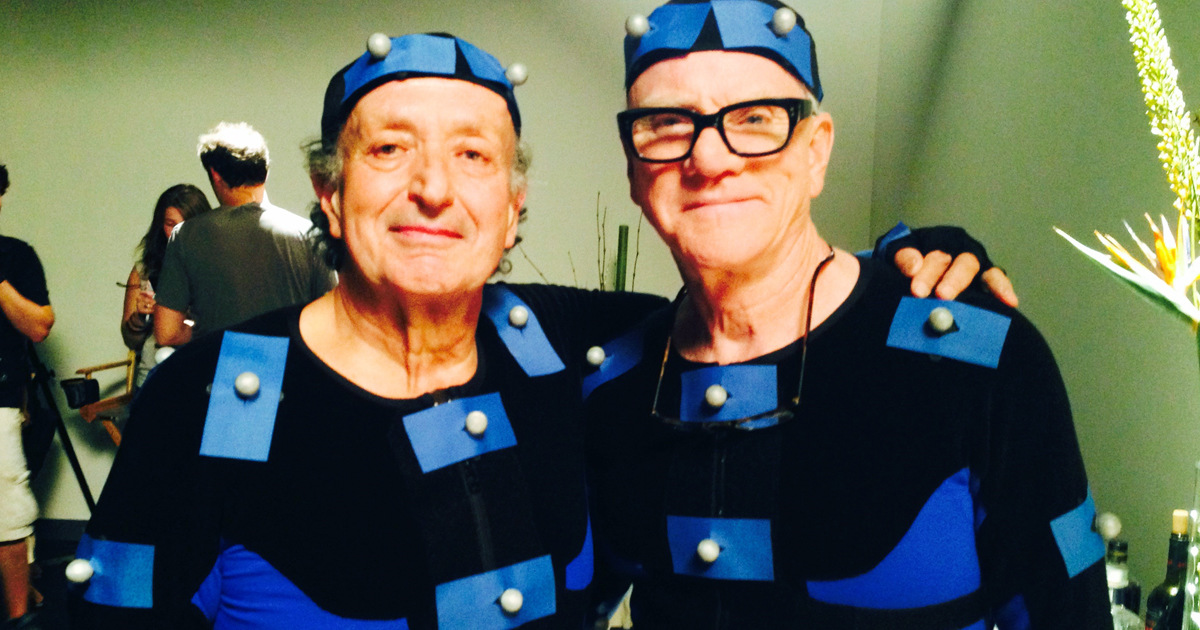Under the stage direction of Bernard Uzan, Opera Grand Rapids is presenting Roméo and Juliet on Friday, April 29, and Saturday, April 30. Uzan has been nominated for an Emmy for his recent appearance on the hit TV show Mozart in the Jungle. He is a Lifetime Achievement Award recipient widely known for his French voiceovers used in popular American films. Ashley Roberts interviewed Uzan about the upcoming Roméo and Juliet production.
Tell me about your extensive career as an actor, stage director, librettist, educator and many more accomplishments I'm not naming.
I started to be an actor and a director a long time ago. I had my debut as an actor in 1964. I was 20 years old. I was in Paris, and I did a lot of theater plays at that time, and lots of voiceovers of actors of American films. I did The Graduate, Serpico, Dog Day Afternoon and many others. Then, in 1971 in Paris, I was asked to go to Middlebury College to teach theater because I was a Professor of Literature teaching students aged 25 to 40 who were pursuing their master's and PhDs. There we did a play, and the French counsel came to see the play and he asked me why I didn't have a theater company there, and why I don't try it. In the fall of 1971, I started a French theatre company in Boston. We ended up touring all over the country for 10 years, doing 90 to 100 performances a year in French.
In 1981, Sarah Caldwell was producing Faust with Neil Shicoff, Samuel Ramey and Diana Soviero, with the original dialogue. She knew me as a theater director and asked if I wanted to direct the dialogue, but I had never been to an opera in my life. I went, and three days later she was not feeling good, and so she asked me to direct the entire opera. A lot of people came to see it, so I had a lot of contracts the following year because of it. I stopped the theatre because I had no time anymore, and I just did opera. Even five years later, in '86 or '87, I was asked to become general director of Tulsa Opera, and a year later I was asked to become general director of Opéra de Montréal. I stayed in Montréal for 14 years.
Congratulations on your recent award for Lifetime Achievement from the Giulio Gari Foundation. How does it feel to win this award?
That's a funny story I'm going to tell you. The same week I received this announcement for the lifetime achievement award, I knew the television series Mozart in the Jungle was looking for actors. I decided to audition, and I hadn't been an actor for a long time. They gave me the part. I am in it, and I am part of the Emmy nomination for best "scene stealer." I am achieved, and in the same week I go to an audition 44 years after my life as an actor. So, it was an extraordinary week. It was a great lesson of humility to go to the audition again. And the lifetime achievement is always a great honor.
Tell me about the company that you established when you first immigrated to the States.
When I was in Boston, I created this company French Theater in Boston. Then, it developed very fast into French Theater in America. Two of my friends came from France to be part of the company. I had three to four living in Boston of French origin, or they were French teachers, so the French was absolutely impeccable and we were touring Molière, for example, all the time. We had a little van and a truck with sets going from city to city.
Once we did a play on a Saturday afternoon on Long Island, and we drove practically nine hours overnight to do a matinee on Sunday in Ann Arbor, Michigan. But, remember, I was 28 at the time, so that was possible. I was a director, I was driving the car, I was the administrator, I was picking up the programs at the end of the play, so we didn't spend too much money.
Tell me about the co-production of Roméo et Juliette that you are mounting.
It is my 16th production of Roméo et Juliette. The first was in 1986 in San Francisco. The cast was Alfredo Kraus, and Ruth Ann Swenson was Juliette—a very important singer as well. It is my 408th production in opera. When people say that's a lot, don't forget that I am very old.
What is your vision for this production?
Not as a joke, but as a really important thing: Roméo loves Juliette and Juliette loves Roméo—period. That's what is the most important. How can we have a different concept for the production when everyone knows the story? I don't want, in this opera, to update it and to set it in Mexico or in the suburbs of New York or whatever, it's a waste of time. I just want to tell the story the way it is. My effort has been trying to find a way to update the language; the French is a little outdated. Do you know young lovers aged 17 lying on a bed singing of marriage? No. So the effort has been to try to find, in the acting and the understanding of the text, ways to make it more modern. I think we have succeeded.
What will audiences enjoy the most at Roméo et Juliette?
I think there are many elements to enjoy. Number one, and not in order of importance, visually it's beautiful. Number two, the singers are really wonderful, they sing extremely well, and they act the part very well. They look the part. Number three, we are telling a real story. So many operas these days are really ridiculous. This is well acted, well sung and you don't ask questions about what something means. It's real!
I really do not believe that one person will leave the theater not happy or not with an experience which really pleases that person. It's a beautiful evening to spend.
How does the opera differ from Shakespeare's story?
When I did Werther in San Francisco, I told the singer Alfredo Kraus, "In the Goethe novel, this is what happened." He looked at me and said, "We need to do Werther by Massenet and not by Goethe." It's always important to know Shakespeare and to have read it, but I'm not directing an opera by Shakespeare. I'm directing an opera by Gounod, and that's very important to understand.
What's your experience in working with Sarah Joy, Jonathan Boyd and the rest of the cast?
I've known Jonathan for almost 20 years. He was a very young singer when I was directing Otello, he was doing a small part and he was a kid, a very young kid, and we stayed friends. Since, we have done a lot of productions together.
Sarah Joy I know recently, for like two to four years, but she has done some productions with me as well.
Kevin Langan is also a friend of mine. He did Turandot with me two to three years ago. I know most of them. I've also known Susan for about 25 years.
Tell me about your opera Cyrano and your plans for the production in coming seasons.
It's a famous French play Cyrano de Bergerac, of which many, many movies have been made. American movies have also been done on it. It's an extraordinary play. David DiChiera from Michigan Opera Theatre wrote the music and I wrote the libretto. We did a few productions already. It's a beautiful opera. I think Grand Rapids should do it! This is another side of what I do. I write. I do books. I publish.
You've been involved with over 400 productions throughout your extensive career. What's your favorite opera?
I don't have a favorite. I think every time you direct an opera, even if you have done it very often, you have to find a way to be new in your approach and to be young again in the experience. So, I don't have a favorite.
(The) Rake's Progress I've never done and I hope I can do that before I'm in my grave. I wish I could direct Lulu. Sometimes, with my experience in classical repertoire, people don't think of me for modern repertoire. I am a favorite for the big works, but they don't necessarily think of me to direct Lulu or (The) Rake's Progress. And I still have a French accent—thank god—and they think of me more for French repertoire, which is ridiculous. I come to mind especially with French or Italian opera. It's too late; I'm not a kid anymore, maybe that is engrained in their brains and not easy to change.
Click here to learn more about Opera Grand Rapids' production of Roméo and Juliet and to purchase tickets.
Bernard Uzan was interviewed by Ashley Roberts, Opera Grand Rapids.




